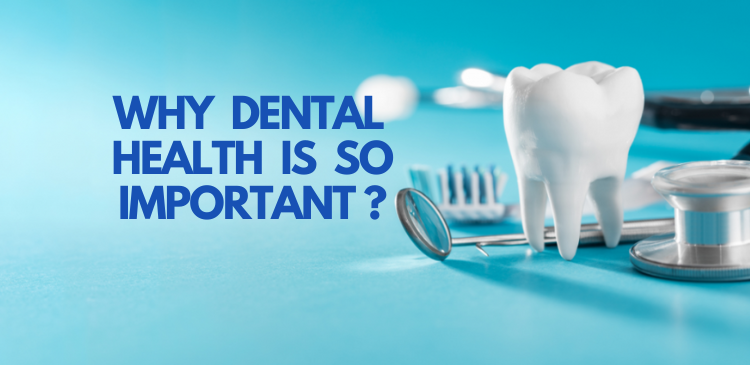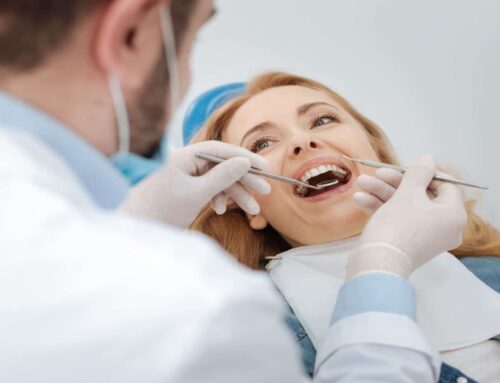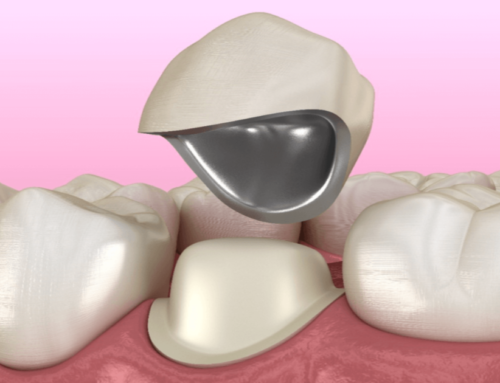Dental health or oral health mainly concerns your teeth, gums and mouth. It focuses on preventing complications such as tooth decay, gum disease etc. and to maintain the overall health of your mouth by keeping one’s mouth clean and free of disease.
Diseases and many other health conditions can affect your dental health and the resulting dental problems may affect other parts of your body. Failure in proper dental care can lead to other health adversities.
Proper oral hygiene habits such as brushing and flossing as well as reducing your sugar intake will help you avoid expensive dental procedures and long-term health issues.
As a top dental institute in Ernakulam, offering one of the best dental lab technician courses in Kerala, here is a detailed overview regarding the importance of dental health.
Importance of Dental Health
Good oral health results in good overall health. Since the mouth is the entry point to the digestive and respiratory tracts, some of the bacteria present in the mouth can cause diseases. The body’s natural defenses and good oral healthcare (such as brushing and flossing), keeps bacteria under control. However, the lack of proper hygiene can increase the level of bacteria to points that might to lead to oral infections such as tooth decay or gum disease.
Dental complications such as cavities and gum disease can affect your ability to eat and speak properly, cause pain and result in bad breath. Poor dental health can have a profound effect on your heart, diabetes, pregnancy, arthritis etc. negatively. Practicing good dental health can avoid such complications. Proper dental health will also improve your appearance and quality of life.
A healthy mouth will help maintain a healthy body. A connection between declining oral health and underlying systemic conditions has been discovered by researchers in recent times. Oral bacteria and inflammation can be associated with:
- Heart disease
- Endocarditis
- Premature birth
- Low birth weight
Bacteria can also spread from your oral cavity to your bloodstream causing infective endocarditis, which is a life-threatening infection of your heart valves.
Steps to Keep Your Teeth Healthy
- Brushing your teeth twice a day, preferably with fluoride toothpastes.
- Flossing at least once a day
- Lowering your daily sugar intake
- Having a diet rich in fruits and vegetables
- Avoiding tobacco-based products
- Drinking fluoridated water
Symptoms of Oral Health Issues
The following are reasons behind poor oral health. If you experience any of these symptoms beforehand, it is recommended to meet with your dentist as soon as possible.
- The presence of ulcers, sores or tender areas that do not heal even after a week or two
- Bleeding or swollen gums resulting from brushing or flossing
- Chronic bad breath
- Sensitivity to hot or cold beverages
- Toothache or prolonged pain
- Loose teeth
- Receding gums
- Pain from chewing or biting
- Swollen face or cheek
- Cracked or broken teeth
- Frequent dry mouth
Reasons Behind Poor Dental Health
The oral cavity consists of a variety of bacteria, fungi and viruses. Some of them belong there and constitute the normal flora of the mouth. Though harmless in small quantities, acid-producing bacteria tend to flourish under diets high in sugar. This acid dissolves tooth enamel and creates dental cavities.
Gingivitis is caused by the inflammation of gums due to accumulation of plaque which hardens and migrates down the length of your tooth if it isn’t removed regularly. Periodontitis is caused by increased inflammation which pulls your gums away from your teeth. It creates pockets which eventually collects pus.
Other factors that contribute to periodontitis and gingivitis are:
- Smoking
- Poor brushing
- Frequent indulgence in sugar-based snacks and drinks
- Diabetes
- Medicines that can reduce the amount of saliva in the mouth
- Family history or genetics
- HIV or AIDS
- Hormonal changes in women
- Acid reflux or heartburn
Types of Dental and Oral Diseases Resulting from Poor Oral Hygiene
- Cavities: They are also known as caries and tooth decay. These are parts of the tooth that have been permanently damaged and can even have holes in them. It occurs due to the accumulation of plaque when bacteria, food and acid coat your teeth. This acid can eat away the enamel and the underlying dentin or connective tissue. When left unattended, it can lead to permanent damage.
- Gum Disease: This is inflammation of the gums. Usually, it is the result of plaque building up on your teeth due to poor brushing and flossing habits. It is also known as gingivitis. Untreated gingivitis gives rise to a much more serious infection known as periodontitis.
- Periodontitis: The progression of this infection can spread it throughout the jaw and the bones. It can create an inflammatory response throughout the body.
- Cracked or broken teeth: Teeth can crack or break from an injury to the mouth, chewing hard food or grinding the teeth.
- Sensitive Teeth: This is the discomfort experienced after having hot or cold food items or beverages. It can happen temporarily due to a root canal or filling, or it can be the result of receding gums, gum disease, cracked tooth or worn-down fillings or crowns.
- Oral Cancer: This includes cancer of the gums, tongue, lips, cheek, floor of the mouth, hard and soft palate.
Treating Dental Problems
A professional cleaning is a must even if you take very good care of your teeth. Regular visits to your dentist can also help point out early symptoms of any underlying oral disease before it is too late. The following methods help in preventing various kinds of oral health problems.
- Cleaning
- Fluoride treatments
- Antibiotics
- Fillings, crowns and sealants
- Probiotics
- Root canal
- Change in daily habits





